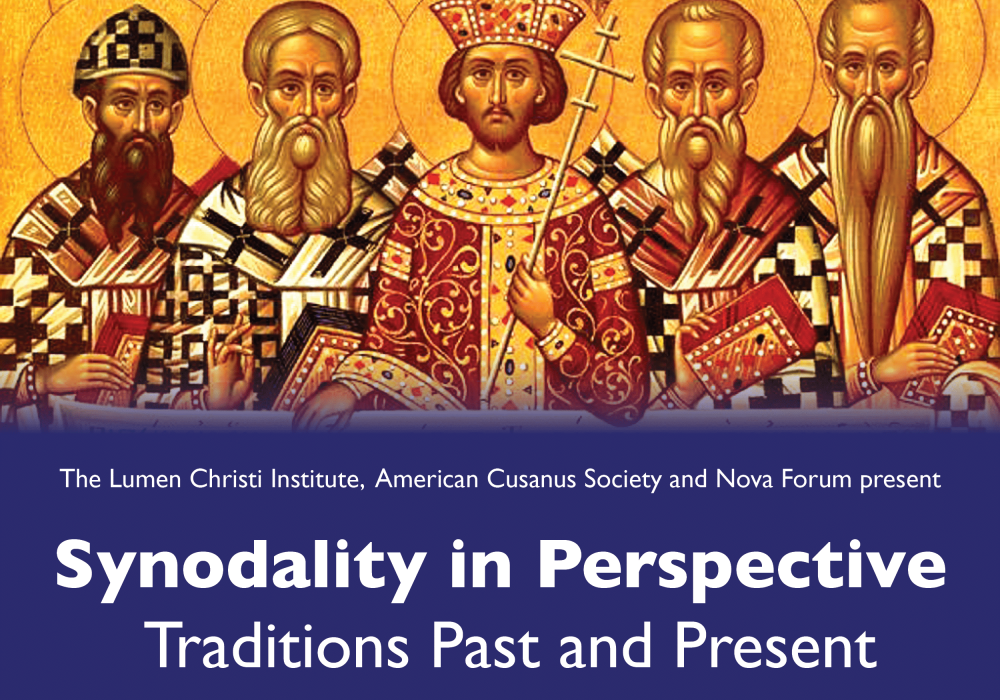Free and open to the public. This online symposium series is being organized by the American Cusanus Society, Nova Forum and the Lumen Christi Institute. Additional Cosponsors include Commonweal, Harvard Catholic Forum, America Media, the St. Anselm Institute for Catholic Thought and the Collegium Institute.
About the Series | In light of Pope Francis’ call for global Catholic communities to enter into a two-year process on synodality, this six-part series will examine both the history of synods and the current dialogue around the future of synodality in the Church. This series is an opportunity to learn more about the topic in advance of the October 2023 Rome summit, “For a Synodal Church.” Pope Francis is inviting the entire Church to reflect on “this path of synodality which God expects of the Church of the third millennium,” an important part of the Church’s own process to achieving participation and living out mission.
About Session 3 | A dialogue on the synodality models which emerged from Vatican II, featuring Shaun Blanchard (National Institute for Newman Studies) and Kristin Colberg (St. John’s School of Theology), moderated by Kathy Sprows Cummings (Notre Dame).

